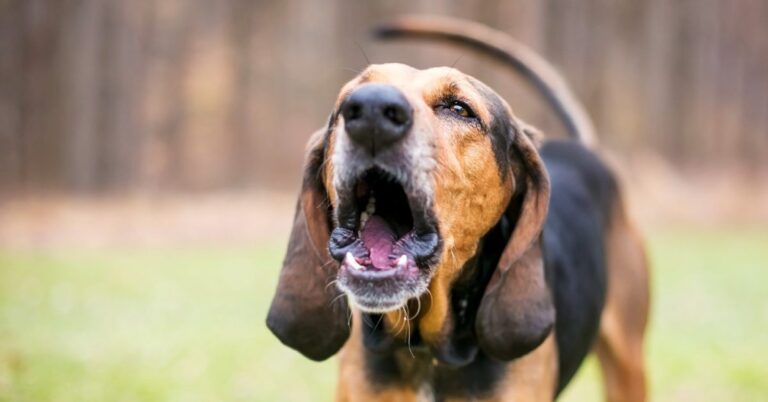Introduction to Dog Care
For dog lovers everywhere, ensuring that your furry friend is well-cared for is a top priority. Proper dog care goes beyond just providing food and water. It involves meeting their physical, mental, and emotional needs to ensure they lead a happy and healthy life.
Importance of Proper Dog Care
Dogs are more than just pets; they are companions and members of our families. Taking care of them properly is essential for their overall well-being. Here are some reasons why proper dog care is important:
- Health and longevity: A well-cared for dog is more likely to live a longer and healthier life. Regular vet check-ups, vaccinations, and a balanced diet are crucial for maintaining their physical health. Regular exercise and mental stimulation also contribute to their overall well-being.
- Behavioral issues: Dogs that receive proper care are less likely to develop behavioral problems. Adequate exercise, training, and socialization help prevent issues such as aggression, anxiety, and destructive behavior.
- Strong bond: When you invest time and effort in caring for your dog, it strengthens the bond between you. Regular grooming, playtime, and training sessions provide opportunities for interaction and create a loving relationship.
Basic Needs of Dogs
To provide proper care for your dog, it’s important to understand their basic needs. Here are the key areas to focus on:
- Food and water: Provide a well-balanced diet that meets your dog’s nutritional requirements. Fresh water should be available at all times.
- Exercise: Dogs need regular exercise to maintain a healthy weight, promote cardiovascular health, and prevent behavioral issues. Provide daily walks, playtime, and mentally stimulating activities.
- Grooming: Regular grooming helps keep your dog clean and comfortable. It includes brushing their coat, cleaning their ears, trimming their nails, and maintaining dental hygiene.
Creating a Safe and Loving Environment
Creating a safe and loving environment is crucial for your dog’s well-being. Here are some tips:
- Provide shelter: Ensure your dog has a comfortable and safe place to rest. Whether it’s a crate, a dog bed, or a designated area in your home, they should have their own space.
- Training and socialization: Properly train your dog and expose them to different environments, people, and other animals. This helps them become well-behaved and confident in various situations.
- Emotional support: Dogs thrive on love and affection. Spend quality time with your dog, providing praise, cuddles, and attention. This helps them feel secure and loved.
Remember, each dog is unique, and their care may vary depending on their breed, age, and health condition. Regular visits to the vet can help you tailor their care to their specific needs.
By providing attentive and comprehensive care, you can ensure that your dog lives a happy and fulfilling life as a cherished member of your family.

Providing Proper Nutrition for Your Dog
When it comes to your furry best friend’s health and well-being, providing them with proper nutrition is crucial. A well-balanced diet can help your dog maintain a healthy weight, prevent certain health issues, and promote overall vitality.
Importance of a Balanced Diet
A balanced diet is essential for your dog’s overall health. It provides the necessary nutrients, vitamins, and minerals that they need to thrive. A lack of proper nutrition can lead to various health problems, including obesity, malnutrition, and a weakened immune system.
To ensure that your dog receives a balanced diet, it is important to provide them with a combination of high-quality dog food, meat, fruits, and vegetables. Consult with your veterinarian to determine the specific dietary needs of your dog based on their age, breed, and any existing health conditions.
Choosing the Right Food for Your Dog
When selecting food for your dog, it is important to consider their specific requirements. Look for dog food that is formulated for their age and size. Additionally, choose high-quality brands that use wholesome ingredients and avoid artificial additives and preservatives.
If your dog has any specific dietary needs or sensitivities, such as allergies or gastrointestinal issues, you may need to explore specialized diets or consult with a veterinary nutritionist for guidance.
Maintaining a Healthy Weight
Maintaining a healthy weight is crucial for your dog’s overall well-being. Obesity can lead to a range of health problems, including joint issues, diabetes, and heart disease. On the other hand, being underweight can indicate malnutrition and other underlying health concerns.
To maintain a healthy weight for your dog, it is important to monitor their food intake and provide regular exercise. Follow the feeding guidelines on the dog food packaging and adjust the portion sizes based on your dog’s activity level and body condition. Regular exercise, such as daily walks or playtime, can help burn calories and keep your dog fit.
Additionally, regular veterinary check-ups are essential to monitor your dog’s weight and overall health. Your veterinarian can provide personalized recommendations and guidance to ensure that your dog receives the appropriate nutrition and maintains a healthy weight.
Providing your dog with proper nutrition is a fundamental part of responsible pet ownership. By offering a balanced diet, choosing the right food, and maintaining a healthy weight, you can help ensure that your dog leads a happy and healthy life.
Remember, if you have any concerns about your dog’s nutrition or overall health, consult with a veterinarian for professional advice.

Exercise and Physical Activity for Dogs
As a responsible dog owner, ensuring that your furry friend gets enough exercise and physical activity is vital for their overall health and well-being. Regular exercise not only helps maintain a healthy weight for your dog but also provides mental stimulation and can prevent behavioral issues that may arise from boredom and pent-up energy.
Importance of Exercise for Dogs
- Physical Health: Regular exercise helps in maintaining a healthy weight, preventing obesity, and reducing the risk of various health problems such as heart disease, diabetes, and joint issues.
- Mental Stimulation: Dogs are intelligent creatures that require mental stimulation to prevent boredom. Exercise provides an outlet for their energy and helps to keep them mentally sharp and engaged.
- Behavioral Issues: Lack of exercise can lead to behavioral issues such as excessive barking, destructive chewing, and aggression. Regular physical activity helps to channel their energy in a positive way, reducing the likelihood of these issues.
Types of Physical Activities for Dogs
- Walking: Daily walks are a great way to provide exercise for dogs of all ages and sizes. It not only provides physical activity but also gives dogs the opportunity to explore their surroundings and engage with their environment.
- Running and Jogging: If you have an active breed or a high-energy dog, running or jogging can be a more strenuous form of exercise. It allows them to burn off excess energy and is especially beneficial for working breeds.
- Playing Fetch: Playing fetch is not only a fun game but also a great way to provide exercise. It engages your dog’s physical and mental abilities, as they chase and retrieve the toy.
- Swimming: Swimming is a low-impact exercise that is especially beneficial for dogs with joint issues or those who are overweight. It provides an excellent cardiovascular workout and is a great way to cool off during hot weather.
Creating an Exercise Routine for Your Dog
- Consult Your Veterinarian: Before starting any exercise regimen, consult your veterinarian to ensure that your dog is healthy and capable of engaging in physical activity.
- Start Slowly: If your dog is not used to regular exercise, start with short and slow walks and gradually increase the duration and intensity over time.
- Consistency is Key: Dogs thrive on routine, so aim for daily exercise sessions. Set aside dedicated time each day to engage in physical activities with your furry friend.
- Consider Your Dog’s Breed and Age: Different breeds have different exercise needs. Some may require more vigorous exercise, while others may need short bursts of activity. Additionally, puppies and senior dogs may have different exercise requirements.
- Make it Fun: Incorporate games, toys, and positive reinforcement during exercise to make it an enjoyable experience for both you and your dog.
Remember that each dog is unique, and their exercise requirements may vary. Pay attention to your dog’s individual needs and adjust the exercise routine accordingly. By providing regular exercise and physical activity, you are not only keeping your dog physically healthy but also contributing to their overall happiness and well-being.

Grooming and Hygiene for Dogs
Having a dog as a pet comes with the responsibility of ensuring its health and happiness. One crucial aspect of this is proper grooming and hygiene. Regular grooming not only keeps your dog looking clean and well-maintained, but it also has numerous health benefits. Here are some key points to consider when it comes to grooming and hygiene for dogs.
Importance of Regular Grooming
- Healthy coat and skin: Regular grooming, which includes brushing, promotes a healthier coat and skin for your dog. Brushing helps to remove dirt, debris, and dead hair from the fur, preventing matting and tangling. It also stimulates the production of natural oils that keep the coat shiny and moisturized.
- Prevents skin issues: Grooming allows you to identify any skin issues early on. Through regular inspections of your dog’s skin, you can detect and address problems like fleas, ticks, or dry patches. This helps prevent the development of more serious skin conditions.
- Facilitates bonding: Grooming sessions provide an opportunity for bonding between you and your furry friend. Dogs are social creatures and enjoy being groomed and pampered. Regular grooming sessions can strengthen your dog’s trust and comfort with you.
- Controls shedding: Dogs shed their fur, and some breeds shed more than others. Regular grooming, especially brushing, helps to manage shedding by removing loose fur before it ends up all over your home. This can reduce allergies and keep your living space cleaner.
- Maintains oral health: Dental hygiene is an essential part of overall dog care. Regularly brushing your dog’s teeth helps prevent plaque and tartar buildup, which can lead to gum disease and tooth decay. It is important to use dog-specific toothpaste and a toothbrush designed for dogs.
- Ear and nail care: Dogs’ ears and nails require regular attention as well. Checking and cleaning your dog’s ears helps prevent infections. Trimming nails can prevent discomfort and complications from overgrown nails. It’s important to know the proper techniques and tools for these tasks to ensure your dog’s safety.
Remember, grooming should be a positive experience for both you and your dog. It’s essential to introduce grooming gradually, using positive reinforcement and rewards. If you’re unsure about any aspect of grooming, consult a professional groomer or your veterinarian.
In conclusion, regular grooming and hygiene practices are vital for the well-being of your dog. From maintaining a healthy coat and skin to preventing skin issues and facilitating bonding, grooming plays a crucial role in your dog’s overall health and happiness. By establishing a grooming routine and addressing your dog’s specific needs, you can ensure that your furry friend looks and feels their best.






